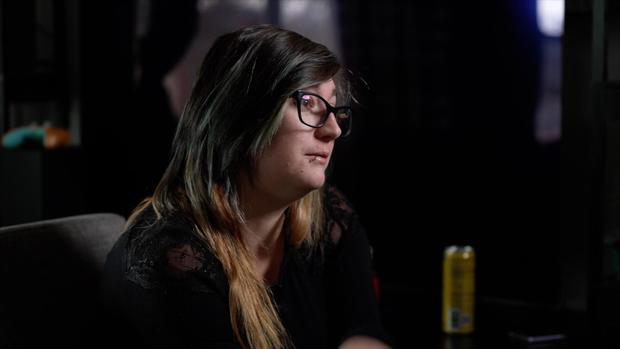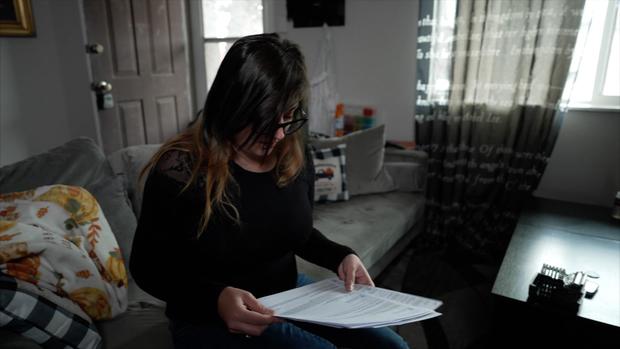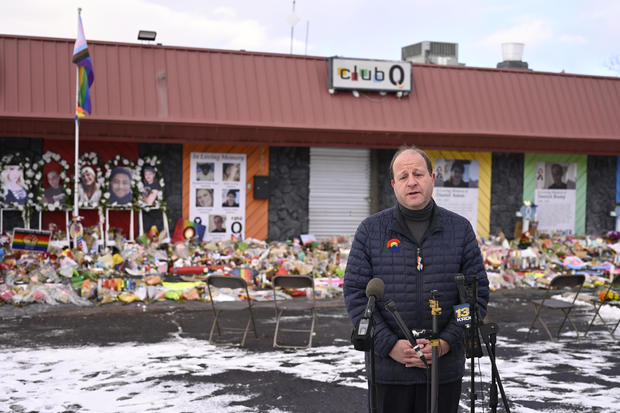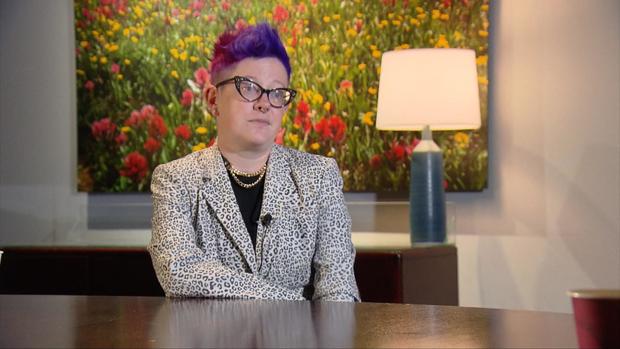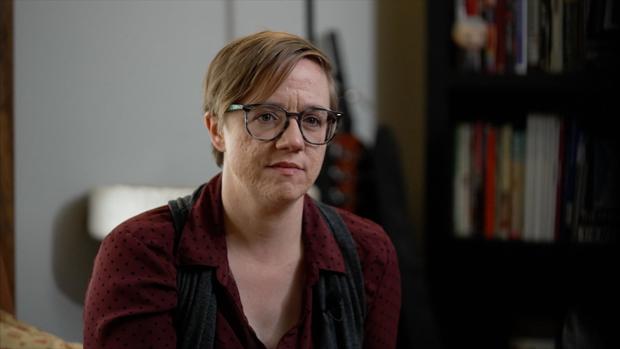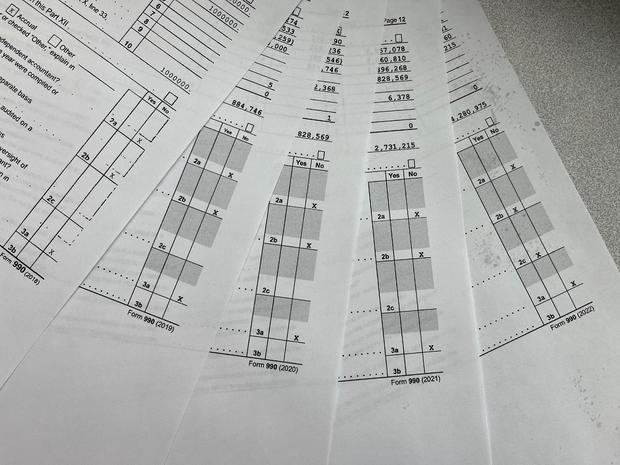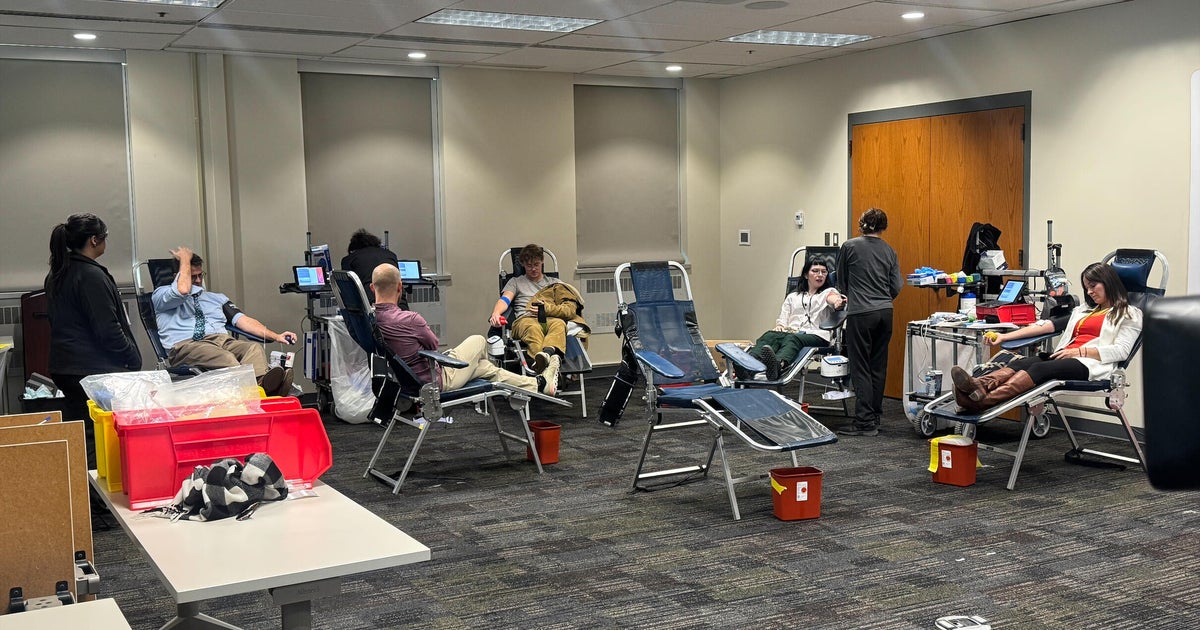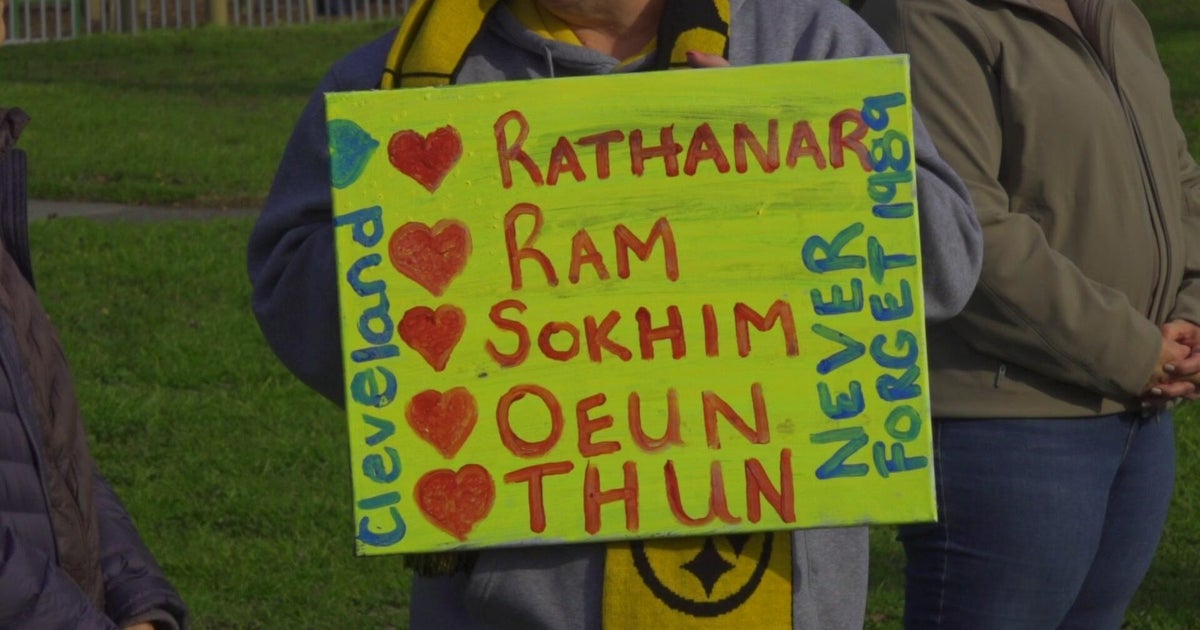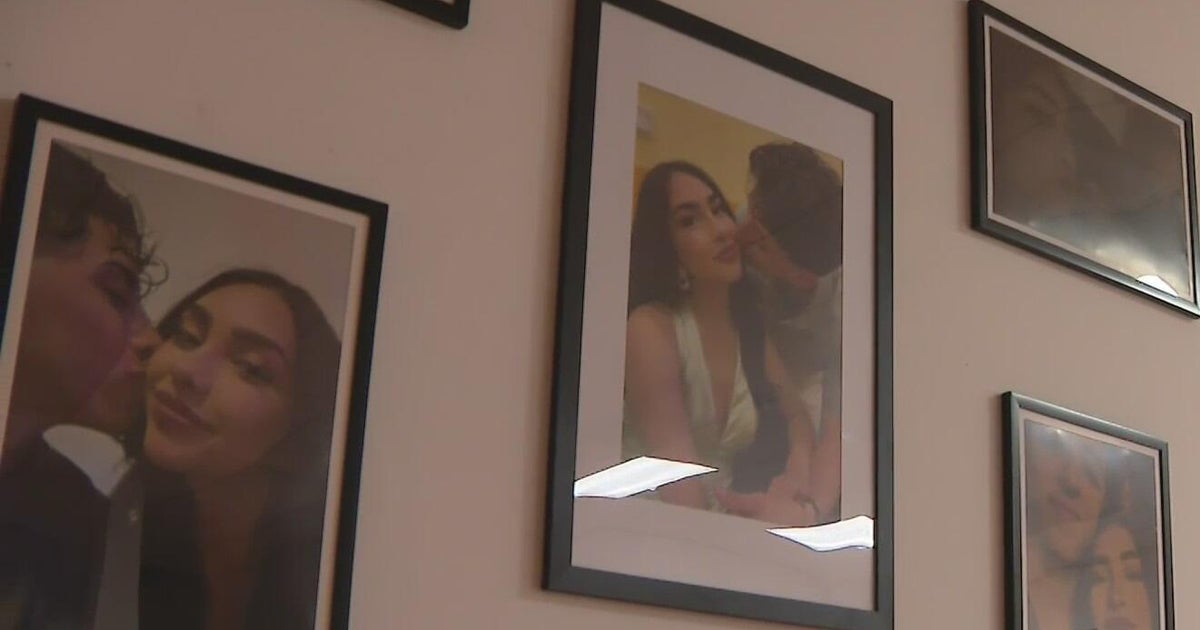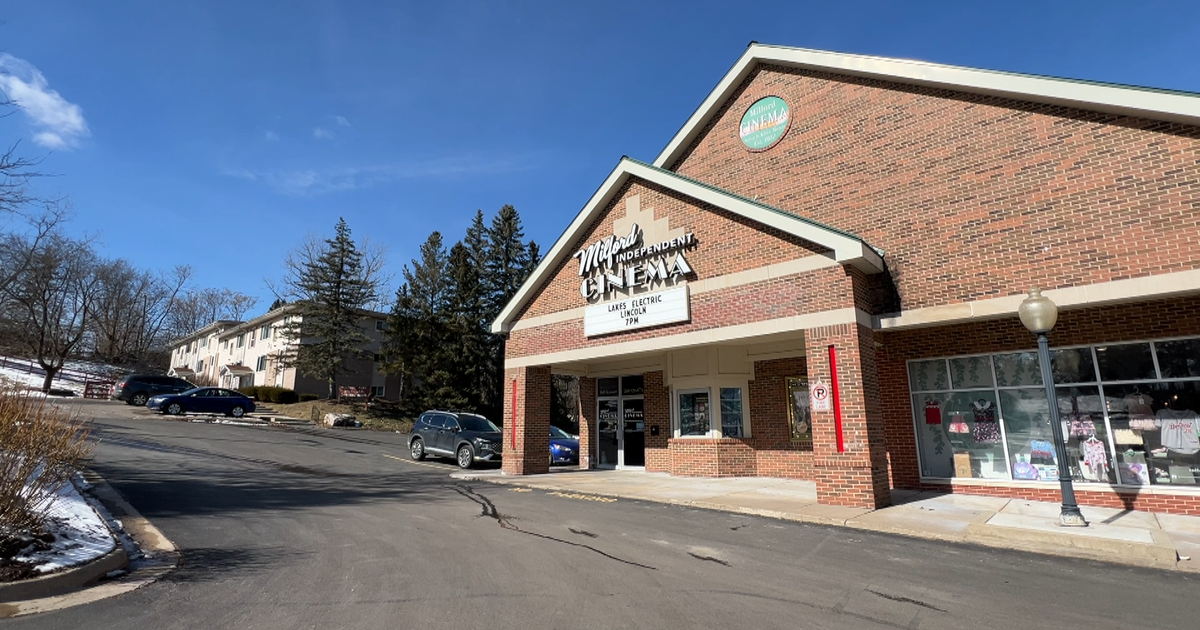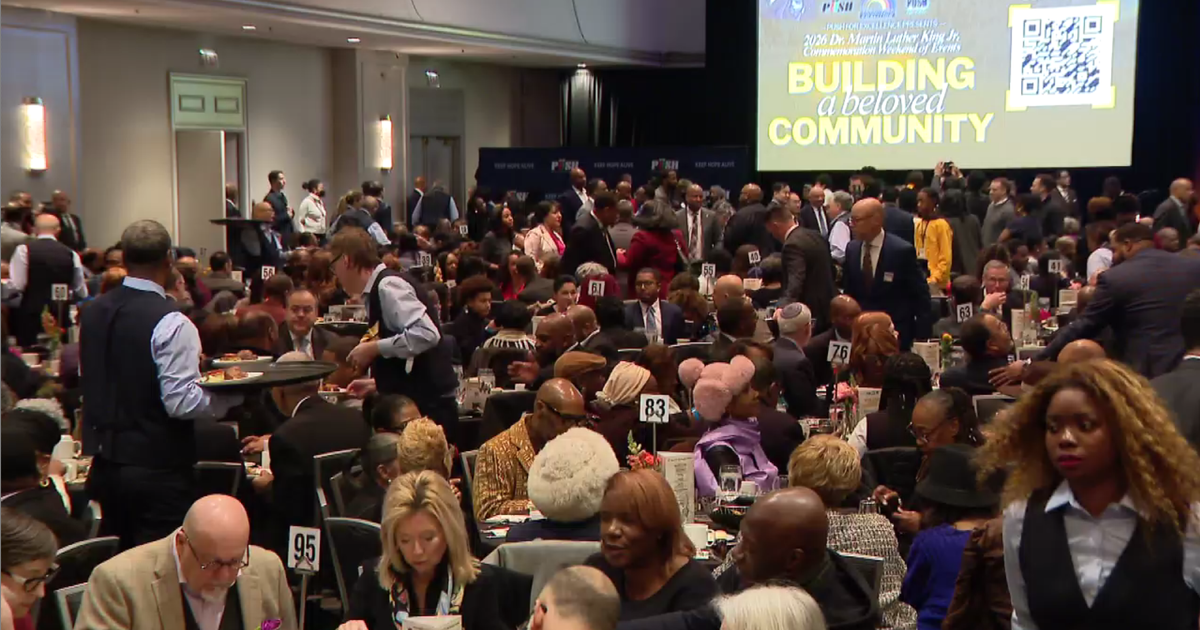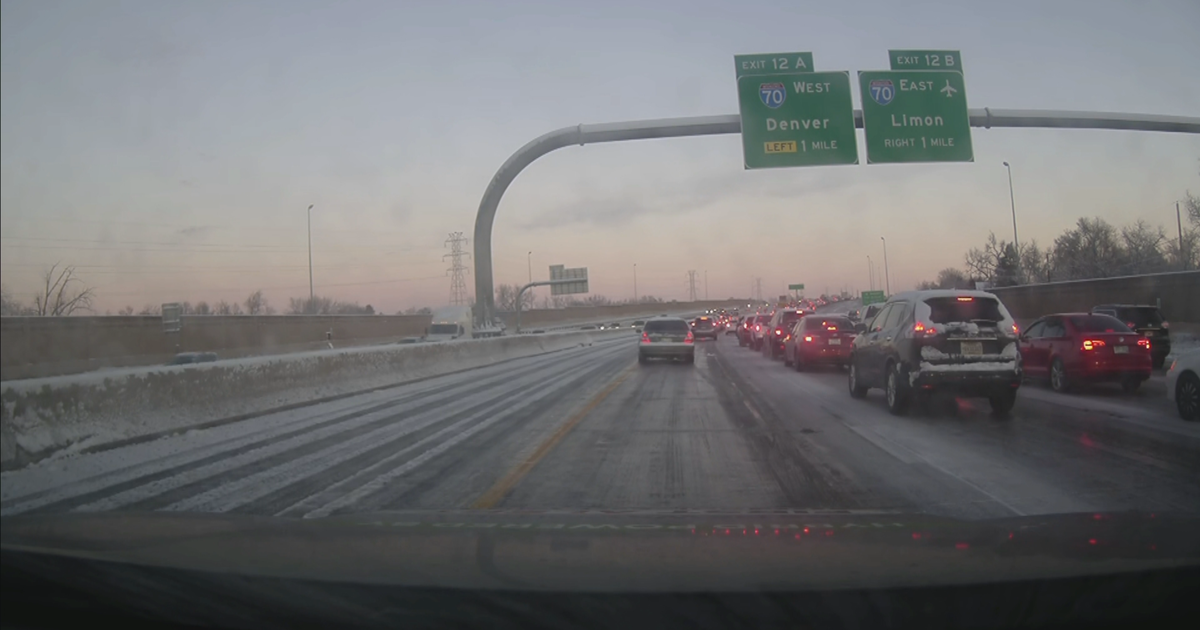One year later, Club Q victims are still fighting for transparency over funds donated in their names
Just days before Nov. 19 -- the day marking one year since the Club Q massacre in Colorado Springs -- an organization that has faced immense scrutiny over its fundraising and donations says it distributed the remainder of the donated money it was withholding to the people impacted by the shooting. It's a move victims, survivors, and advocates say typically comes after public pressure campaigns.
CBS News Colorado investigators have exclusively obtained a petition signed by dozens of mass shooting victims in Colorado demanding accountability of that nonprofit collecting donations in their name. The petition is a letter to several political leaders in Colorado, including Gov Jared Polis, signed by dozens of survivors of the Boulder grocery store shooting in 2021, the Sol Tribe and Denver-Lakewood shooting spree in 2021, and the Club Q shooting in 2022. They allege the Colorado Healing Fund's withholding of money donated by generous Coloradans has caused them more harm.
The letter says some victims of those shootings still remain in a state of financial crisis, with some even on the brink of homelessness.
Dozens of mass shooting victims have signed on to this petition, addressed to Polis, Attorney General Phil Weiser, Secretary of State Jena Griswold and several other state leaders demanding an audit be conducted into the finances of the Colorado Healing Fund:
"Now that the Colorado Healing Fund claims to have released all the donations for Club Q, they have no justification to hold onto the donations they collected for Colorado's previous mass shooting victims," the letter says. "Thus, we stand together and demand the full release of all donations directly to the victims' families and survivors for Sol Tribe and Boulder victims -- the survivors and the families of those murdered. We need financial help now and those donations were intended to provide us with the help we so desperately need."
Reached for comment about the petition, Polis' office said they are still reviewing it.
The Colorado Healing Fund, founded in 2018 by former Colorado Attorney General Cynthia Coffman, says it raised $3.25 million for victims and survivors of the deadly Club Q shooting.
RELATED: What we know about the Club Q shooting victims
Daniel Davis Aston, 28; Kelly Loving, 40; Ashley Paugh, 35; Derrick Rump, 38; and Raymond Green Vance, 22 were killed in the shooting.
In the shooting, which appeared to target one of Colorado Springs' most popular LGBTQ bars, five people were killed and 25 others were injured, 17 by gunfire. The shooter, Anderson Lee Aldrich, was apprehended by people at the club, and then arrested on scene by responding officers. He pleaded guilty to the shooting and was sentenced to life in prison.
The survivors and families of those killed say the Colorado Healing Fund has withheld funds, made them jump through hoops to prove the need for that money, and that the organization has been less than transparent in how those funds are distributed.
RELATED: Colorado Healing Fund responds to criticism over donation distribution for victims
The organization has long maintained that it will hold some of the money it's collected in donations for victims' and survivors' "long-term needs," but others who work in the space of victim advocacy and trauma say the Colorado Healing Fund's model is flawed. CHF said victims have "never" agreed on a distribution formula for funds raised on their behalf.
The group wouldn't comment on how much it gave to any individual victim or survivor, citing confidentiality, but said in a statement to CBS News Colorado Monday, that, in some cases, they disbursed funds for specific requests. In other cases, they say they "disbursed funds in lump-sum form so those who received it could prioritize their own needs."
"We have a responsibility to verify and prioritize needs," Colorado Healing Fund Executive Director Kevin McFatridge told CBS News Colorado in an email statement.
The Colorado Healing Fund declined an interview with CBS News Colorado for this story but says it's now preparing the final checks for survivors. Last week, it said Club Q victims prompted its leadership to change how it distributes funds.
"The CHF had intended to hold back some funds to support the long-term needs of victims, but conversations with victims made clear that the intermediate needs were too significant to not address immediately," the Healing Fund said in a Nov.17 news release. "As a result, the members of the board of directors made the decision to disburse the remaining $120,986. The funds have been disbursed through Community Health Partnership, CHF's community partner, to the victims' families, survivors, and those immediately impacted."
Club Q survivors and advocates characterize the move as a win but say the last year has been an arduous process in getting the CHF to distribute money to victims and survivors.
"It's very exhaustive:" Victims say they had to beg for money
Ashtin Gamblin was shot nine times while working the door at Club Q the night of the shooting.
Her time recovering has involved not just physical and mental health recovery, but also arguing with the Colorado Healing Fund over fund disbursements.
"My experience with them? I hope that they decide to dissolve themselves and cease whatever aggravation they want to put victims through," Gamblin told CBS News Colorado in an interview for this story.
Attempting to get money from the Colorado Healing Fund for her needs has been a nightmare, she says. Among her immediate needs were a service dog, a flood cleanup in her basement and a new air conditioning unit because of her injuries and sensitivity to temperature shifts.
"Anytime it gets above 75 degrees, we pretty much have to completely shut it off. It's useless," she said. "My hand is extremely sensitive to temperature. So once we start to hit anything above 65 degrees, it becomes intolerable to me. This is something I've cleared with medical professionals -- doctors."
The Colorado Healing Fund has said it doesn't accept or reject any specific requests, but emails from Jordan Finegan, the group's former executive director, and McFatridge, the current executive director, from July through October appear to show outright denials of Gamblin's requests.
"The basement flood repair - Because this is not directly related to the incident at Club Q, it does not qualify to be paid for by CHF," Finegan wrote, in part. "CHF does not pay for the purchase of a service animal, as there are nonprofits that would provide a service animal for you."
"As we've previously communicated, specific to the AC and the service animal... there are other organizations who will refund for service animals," McFatridge wrote. "With regards to the AC, that is something that CHF does not fund. At this point, CHF is focused on mental health and medical costs."
A back and forth in the emails provided to CBS News Colorado appears to show CHF repeatedly denying the request for air conditioning, despite Gamblin's urging that temperature control is a medical necessity. She also says they denied a request for a shower bench, which her insurance also didn't cover.
Gamblin is blocked by the CHF on social media, she said, showing various social media platforms she's blocked by them on. She says many other survivors are blocked, as well, after speaking out online.
"Most of the victims and advocates are actually blocked unless it's somebody that Kevin [McFatridge] has personally chosen to work with and who wants to be on Kevin's side," Gamblin said.
She says this year has left her frustrated and disappointed.
"It's very exhaustive and if you try doing one thing on social media, you end up blocked," Gamblin said. "A couple of weeks ago, we found out that they were doing a fundraiser and we found out through Facebook and as soon as we had commented on it, asking about this fundraiser, everybody was instantly blocked and removed ... and this is what we go through."
Just days after the shooting took place, public figures -- including Colorado Gov. Jared Polis -- called on Coloradans to give to the Healing Fund despite victim outcries early on about CHF's plan to keep 10% of the donated money collected for overhead and salaries.
RELATED: Governor Jared Polis visits Club Q memorial: "The community will be back and people will feel safe"
"We know that in the darkest times, the strength of Coloradans shines through. As we mourn the lives of those lost in this horrific act of senseless violence, we encourage anyone who is able to contribute to our community members in need by giving to the Colorado Healing Fund," Polis said at the time.
The Healing Fund has since said it found someone to underwrite its administrative fees and won't keep that 10%, but survivors of the Boulder King Soopers shooting and tattoo shop shooting in Denver and Lakewood say CHF is still holding onto funds they raised around those shootings.
Documents from the Healing Fund show it collected a 5% administrative fee from the more than $4 million in donations it received after the King Soopers shooting.
RELATED: Community Donates $1.3 Million To Colorado Healing Fund For Boulder Shooting Victims (from 2021)
In response to questions from CBS News Colorado, McFatridge did not comment on the 5% fee in the Boulder shooting, only mentioning their change in response to the Club Q shooting:
"We are a lean organization with only one employee. Experts recommend that nonprofits spend no more than 30% of their funds on overhead expenses. Our percentage is closer to 5%. Where we can, we solicit benefactors to cover the administrative costs associated with specific activations. That is what happened with our Club Q fund - we identified an outside benefactor who agreed to cover our administrative costs so that 100% of the funds we received for Club Q victims and survivors went to them."
Advocates urge changes
Gamblin and approximately 30 other survivors and victims' families have been working closely with the Denver-based Bread and Roses Legal Center to advocate for the release of the funds to the people they were intended to help.
Z Williams, the co-executive director and co-founder of Bread and Roses, says while they're not a practicing attorney, they help clients navigate legal issues and the legal system.
Williams worked with Colorado Healing Fund after their friend Alicia Cardenas was killed in the Sol Tribe tattoo shop shooting in 2021. CHF's handling of the aftermath of that shooting, they say, led Williams to anticipate how it would go on to handle Club Q fundraising efforts.
"I remember sitting in the shop and looking at my phone and seeing this post on Twitter that said 'the Colorado Healing Fund is raising money for these survivors or for these victims. It's the only reliable fund,' and I was, like 'who are these people?'" Williams said. "And so I was just kind of taken aback to see the statement that this was the only ethical way to give money to people."
That's when Williams learned more about CHF's practices, which they found concerning.
"I started to dig more and learned that the Healing Fund was going to be keeping 10% of the money raised and that they were using law enforcement as the primary mechanism to deliver that money," Williams said. "In the communities that I work in, we're typically supporting people who do not feel comfortable with law enforcement -- who have a historic relationship of trauma with law enforcement -- and so using law enforcement as the primary way to deliver funds immediately creates a barrier. So we started the conversation, then, of saying, 'who are these people and why are they saying that they are the ones to get money to our community?' They've never even met us."
"And I started to do a lot of research on how they were created, and why they functioned in these different ways and also tried to find ways to get people the money that was raised in their name. We've never seen a report from Sol Tribe. We've heard them state how much money they raised, but we've never seen a full report of how the money was spent, which is part of their commitment. We've seen disparate numbers."
Documents from the Colorado Healing Fund also show it pledged to use more than $900,000 of the donated money for Boulder shooting victims to set up a resource center for things like mental health.
Experts say setting up mental health resources for mass tragedy victims is a common practice by nonprofits like the Healing Fund, but it's a practice that can be frequently flawed and can leave victims without the specific help they might need.
Some of the Boulder shooting victims' families live out of state, for example, and some survivors have moved away, so they can't utilize the resource center.
Instead, advocates like Zachary Blair with the organization Victims First say donated money should be handed out in equitably distributed checks for all victims of a tragedy so they can pay for their own doctors or therapists or any other needs that might come up as they heal for years to come.
"It's very alarming every time this happens," Blair told CBS News Colorado. "There's a pattern where nonprofits want to act like a parent, and you know, victims of mass shootings are adults. They have bills, they have responsibilities, they have mortgages, they have rent. They are functioning adults who have experience, severe trauma, severe tragedy. They don't want a nonprofit parent. They don't need a nonprofit parent."
"These nonprofits have power to make decisions that they've never made before, and I think a lot of it is hesitancy to give up that power; you know when you're just collecting and giving and with no say- I mean, you know, that's the best way to be; You collect, you give, you distribute equitably."
Blair says there isn't much government oversight on how nonprofits like his own, or the Colorado Healing Fund, choose to spend money donated to victims but says Victims First donates 100% of his organization's donations collections for mass violence victims always go to the victims for whom they were intended.
But how does his nonprofit make any money to stay in business? Blair says Victims First conducts separate fundraisers for operational costs, therefore not profiting off the backs of survivors.
He also says his organization has regular independent audits conducted on its finances to foster more transparency with donors and the public -- something he says is currently not required in Colorado but is in many other states.
RELATED: Mass shooting survivors meet in Colorado Springs to discuss financial donations for victims
State Rep. Stephanie Vigil, whose district includes Club Q, says she would support an independent audit requirement of nonprofits raising money for mass tragedy victims.
"We definitely have a lot of work to do at a public level, about how we're going to support victims because there's so much -- there's so much attention, and expense, and everything that goes into the prosecution and punishment and everything," she told CBS News Colorado. "That part of that is very important."
She says her office is still researching the best approaches to potential legislation on the matter, but finding a solution is something she says will be critical as the occurrence rate of mass violence incidents in the US continues to rise.
"Sometimes, we just sort of forget that the victims are there and that people are still alive, and still healing, and still having surgeries, and still have extraordinary costs that came up in their lives, because of what happened that night, and what are we going to do to support them?" she said. "There just hasn't really been a well-coordinated effort in that regard."
Potential solutions offered by other victims' families
The IRS could step in if a nonprofit was acting particularly egregious with donated money, like buying a yacht with the money instead of handing it out. But experts tell CBS News Colorado these more subtle concerns voiced by Colorado shooting victims aren't typically monitored as critically, as long as the funds remain in a nonprofit function or space.
Additionally, experts argue victims of mass tragedy need help at all stages of healing -- even several years after the incident took place.
Loved ones of the people killed in the 2007 massacre at Virginia Tech University have created a solution for long-term funding needs so that nonprofits collecting donations can disburse the money for immediate needs.
The VTV Family Outreach Foundation created a state-funded account for mass violence victims, which began with a one-time $10 million investment from the state of Virginia's general budget, and has been invested into the market to continue to grow to raise more money to help victims with their medical and therapy needs three years or longer after the tragedy occurred.
To qualify for the funds, victims of a mass violence incident simply need to show a doctor's note.
"Our 16 years in the aftermath of the Virginia Tech shooting has taught us much. We have modeled a path forward that we know is practical, actionable, sustainable and perpetual, in assisting those impacted by mass gun violence/mass violence events with their long-term financial needs," said Joseph Samaha, the director of victim advocacy and outreach for the foundation.
Samaha knows the need for financial assistance for people affected by mass violence all too well. His daughter Reema was killed in the Virginia Tech shooting, and he says it wasn't until eight years later that he realized he needed therapy.
After successfully launching the Virginia Mass Violence Care Fund, his foundation is now meeting with leaders in other states to discuss how the model could help across the country.
Last week, he was in Maine following a mass shooting rampage at a bowling alley and restaurant in Lewiston.
"I'd say, in honor of the victims of the Virginia Tech shooting, this voice is loud," Samaha said. "This voice hasn't gone away and we're very persistent in finding ways to help others proactively."
Rep. Vigil says a public fund option is something she would be willing to consider to help mass tragedy victims' families and survivors receive the support they need.
"I think all options are on the table at the moment," Vigil said. "I do think that sometimes in Colorado, we assume that people's appetite for a public program isn't there and that we just really want to privatize everything and keep government spending very low, but also, there are some services that we take out of the whims of the market for a reason; so that we can have good governance so that it's reliable so that it's accessible to everyone."
At the very least, Gamblin and Williams feel a requirement of an independent audit would be an important first step in the right direction to ensure better transparency of nonprofits handling donated funds for tragedy victims.
"Without an independent audit, it's really hard to trust their numbers," Williams said. "We believe very strongly that there should be an audit, that that should be done at the Secretary of State level. The Secretary of State has absolute authority to be looking into the function of nonprofits that are operating in the state and I think that would be very beneficial. I also think that it is time for legislators to learn about some of these issues so that next time there is an event -- because we know it's 'next time,' unfortunately -- they're more thoughtful about who they endorse for funding."
McFatridge said, "the Colorado Healing Fund is audited by an outside accounting firm every year, and we account for every penny we receive."
However, CBS News Colorado checked the organization's tax forms and found since the organization opened in 2018, it hasn't reported having conducted an audit to the IRS until just last year.
CBS News Colorado also asked for copies of the company's audits, but McFatridge said they don't publicly release them. When asked about the disparity between his claims that the Colorado Healing Fund did independent audits each year and their tax forms not reflecting that, McFatridge never responded.
In the meantime, since Gamblin's life changed on Nov 19, 2022, at Club Q, she has become an advocate for other victims like herself and has started volunteering with Victims First.
"I'm very stubborn. I will not quit until some form of change has been made," Gamblin said. "I'm willing to do what needs to be done."
This is a series by CBS News Colorado looking into the concerns among victims of various mass tragedy events like shootings and wildfires. CBS News Colorado will continue to investigate issues concerning donated funds for mass tragedy victims and will publish more developments as they come.
